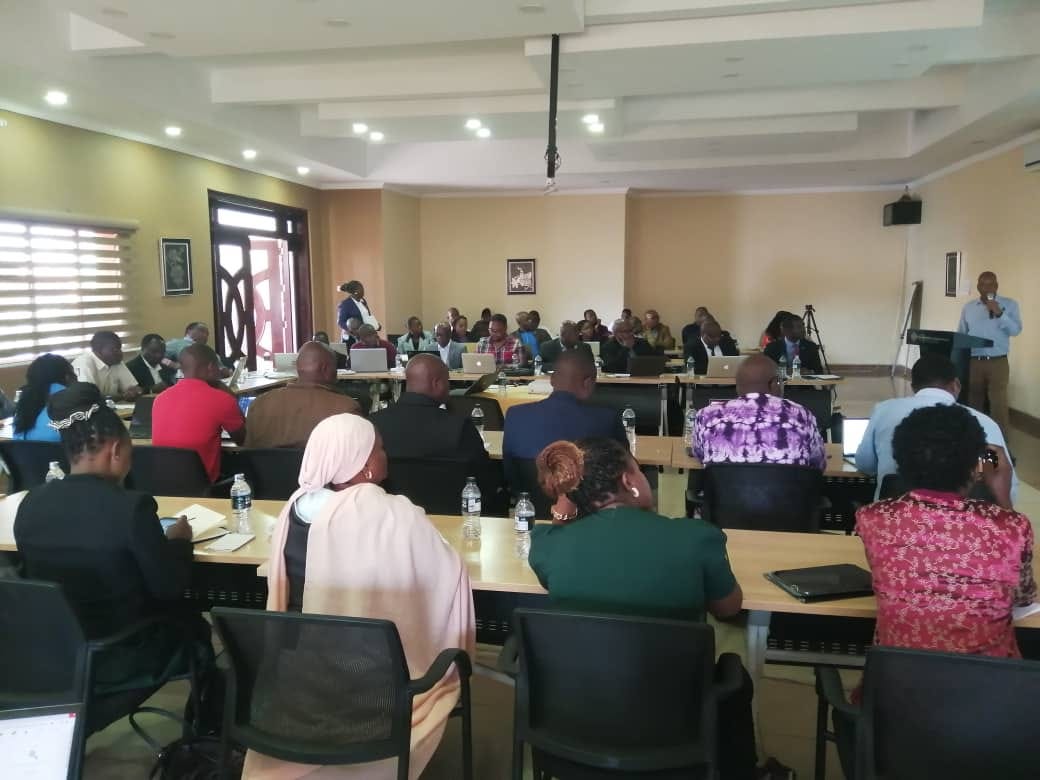GENOME EDITING - Experts validate training modules and communication strategy in Malawi
Better understanding of genome editing technology is very important as it determines the rate of adoption for farmers to boost food and nutrition security on the African continent

LILONGWE, Malawi (Planet Defence) - Malawi is hosting a validation of training modules, communication strategy and action plan for Genome Editing (GEd) with support African Union Development Agency (AUDA-NEPAD) through the Centre of Excellence on Science, Technology and Innovation.
Genome Editing (GEd) project aims to foster a broader understanding of modern biotechnology focusing on GEd among different stakeholder groups through communication and advocacy for enhanced uptake of the tool to optimize agriculture in Africa.
The move to develop national communication strategies and action plan is based on the recognition contained in Agenda 2063, the 50 years development blue print of the African Union. It recognizes that technological advancements from biotechnological innovations in plant and animal breeding have the potential to advance continental agricultural sustainability goals and transform African societies and spur social economic development on the continent.
In his inaugural remarks Vice Chancellor of the Lilongwe University of Agriculture and Natural Resources (LUANAR), Professor Emmanuel Kaunda thanked AUDA-NEPAD efforts of bringing stakeholders together under one roof.
“The validation has brought together Ministry of Agriculture, a policy holder for all matters related to agriculture productivity, Lilongwe University of Agriculture and Natural Resources, a capacity building institution in agricultural technologies, Ministry of Natural Resources and Climate Change, as a regulator of all technologies. Gone are the times when sectors used to work in silos, for meaningful development working together is a must and no longer an option,” observed Professor Kaunda while looking at the diversity of stakeholders present.
Professor Kaunda hailed the process of developing the communication strategy as being so inclusive. “All relevant stakeholders which among others include government departments, private sector, journalists, faith community have been taken on board. A better understanding of the technology is very important as it determines the rate of adoption,” explained Kaunda who is also a renowned aquaculture specialist.
Agriculture is the primary source of food for the majority of Africans. By investing in agricultural development, Africa can ensure food security for its growing population and reduce dependence on food imports, Yusuf Mkungula, Principal Secretary for Natural Resources and Climate Change said when he took to the podium.
With climate change impacting Africa more severely, sustainable agriculture practices can enhance the continent's resilience to extreme weather events, water scarcity, and other climate-related challenges.
“Embracing agricultural technology and innovation can lead to significant improvements in productivity, efficiency, and sustainability. Therefore, investing in research and development can drive progress in the sector.
Genome editing is one of such technologies that have the potential to contribute significantly to agricultural productivity,” Mkungula provided oversight on the technology.

According to Mkungula, this is an opportunity for Africa to enhance understanding of genome editing technology and build its capacity to be able to develop national driven products that meet national needs. Improving agricultural productivity can lift many Africans out of poverty. Small-scale farmers, in particular, can benefit from access to better technology, training, and market linkages. He added that as we implement the technology there was a need to raise awareness to allay fears so that the general public are at the same pace.
Experts from eight African countries namely Burkina Faso, Ethiopia, Ghana, Kenya, Nigeria, Mozambique and Zimbabwe are in Lilongwe, Malawi to attend this important meeting.
The communication strategy and training modules being develop will play a very important role in creating awareness and ensuring sustainability of both knowledge and technology at national and continent level. While training modules may be important for tailor-made courses targeting different audients.
“I wish to call upon each country to ensure that these modules should find their way into the school curricula. This is the most effective approach for knowledge transfer among the youth in the field of biotechnology which will further unlock agricultural potential and achievement of long-term economic growth and prosperity of the continent,” summed up Mkungula.



